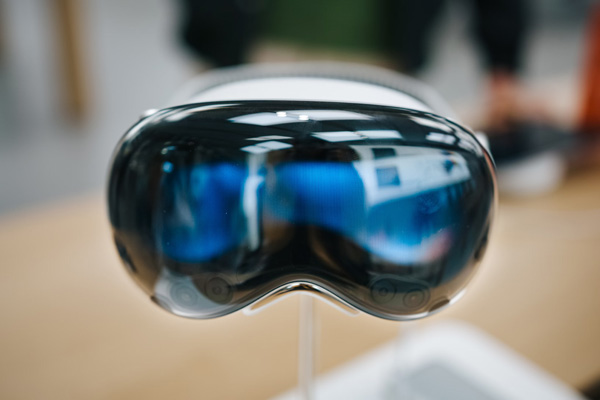Apple and Google intensify rivalry in the race for smarter AI glasses

[Photo Credit to Unsplash]
The competition in the smart glasses market is intensifying as two tech giants, Apple and Google, ramp up efforts to develop next-generation wearable devices equipped with AI-powered capabilities in 2025.
Both companies are preparing their respective entries into a field that blends augmented reality, real-time language translation, and everyday utility, all packaged through lightweight, glasses-style wearables.
Apple is reportedly aiming to release its first AI-enabled smart glasses by the end of 2026.
Designed to rival Meta’s Ray-Ban smart glasses, Apple’s device will feature real-time translation, phone call functionality, music control, and navigation assistance.
Prototypes are expected to enter production by the end of this year, with engineers working closely with overseas suppliers to perfect the design.
The glasses will likely incorporate cameras, microphones, and speakers, enabling them to analyze the user’s environment and provide contextual assistance.
Apple’s smart glasses initiative signals a shift toward AI-integrated consumer gadgets, positioning the product not just as an accessory but as a new computing interface.
To focus on this initiative, the company has reportedly paused other wearable projects, including a smartwatch with camera-based environmental sensing, to prioritize the development of the glasses.
Meanwhile, Google is making a comeback in the smart glasses space with its Android XR glasses, revealed during its 2025 I/O developer conference.
In contrast to its earlier Google Glass project, which failed to gain traction and was eventually discontinued in 2023, the new Android XR glasses promise a fully integrated AR experience powered by Google’s Gemini AI.
Google’s glasses are designed to project a digital interface onto the lens, allowing users to access information, navigate using Google Maps, send messages, and even schedule appointments.
Although still in its early stages of development with no confirmed release date or price, the glasses are being co-developed with fashion eyewear brands like Warby Parker and Gentle Monster, suggesting a consumer-friendly design approach.
One of the most anticipated features of both Apple and Google’s glasses is real-time speech translation.
Apple plans to integrate live translation as a built-in capability into its glasses offering seamless communication across language barriers.
Similarly, Google also demonstrated live translation during its I/O event, though the demo ended prematurely, the feature remains a core focus of its product.
These developments are part of a broader trend as tech companies race to define the next generation of personal computing.
While Meta’s Ray-Ban smart glasses currently offer basic functions like photography and voice commands, both Apple and Google are looking to expand beyond novelty use into truly intelligent eyewear.
The contrast in strategies is also apparent.
Google is focusing in-lens augmented reality and conversational AI integration, aiming for an immersive interface.
Apple, by comparison, appears to be pursuing a more subtle experience, potentially positioning its glasses as a refined, utility-focused alternative with powerful under-the-hood AI.
Industry analysts predict that whichever company can deliver seamless translation, intuitive controls, and real-world usefulness without sacrificing comfort and battery life will likely dominate this new market.
The integration of AI into everyday wearables is expected to become one of the most influential tech battles of the decade.
As both companies press ahead, consumer concerns around privacy, battery life, and affordability will play a significant role in shaping adoption.
The competition could also accelerate developments in other wearables and augmented reality platforms, setting the stage for a new era of AI-enhanced daily life.

- William Choi / Year 12
- Dulwich College Seoul

![THE HERALD STUDENT REPORTERS [US]](/assets/images/logo_student_us.png)
![THE HERALD STUDENT REPORTERS [Canada]](/assets/images/logo_student_ca.png)
